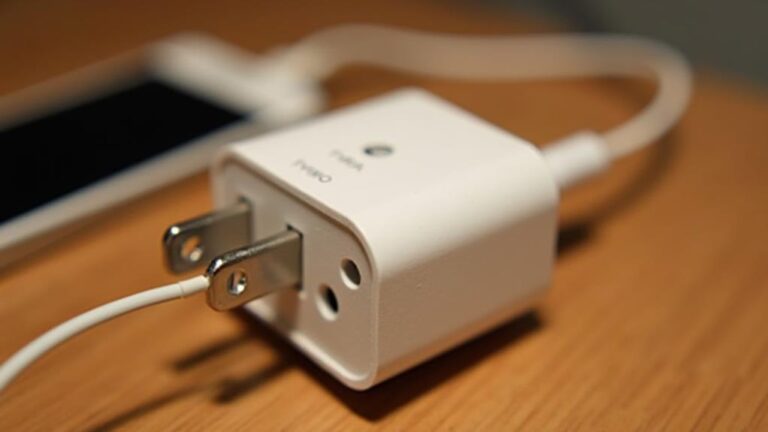If you lose your passport in Thailand, act fast. First, report the loss to the local police and get a copy of the report. Then, contact the U.S. Embassy in Bangkok immediately. They'll guide you through the process of getting an emergency passport. You'll need to fill out form DS-64 and gather essential documents, including any copies of your lost passport. Visit the embassy in person to complete the necessary paperwork and pay the required fees. Don't forget to inform Thai Immigration about your situation. Following these steps promptly will help you navigate this stressful situation and get back on track with your travels.
Table of Contents
Key Takeaways
- Report the loss to the nearest police station and obtain an official police report.
- Contact the U.S. Embassy in Bangkok immediately for assistance and guidance.
- Gather essential documents, including copies of your lost passport and proof of citizenship.
- Apply for an emergency passport at the U.S. Embassy, which costs 4,500 baht.
- Visit the Thai Immigration Office to complete necessary paperwork for passport replacement and visa concerns.
Report the Loss Immediately
As soon as you realize your passport is missing in Thailand, it's important to take immediate action. Your first step is to report the loss of your passport to the nearest police station in Thailand. This official report will be pivotal for the replacement process and can help protect you from potential identity theft.
After filing a police report, contact the nearest U.S. Embassy or Consulate as quickly as possible. Inform them about your lost passport situation, as they'll guide you through the necessary steps for obtaining a replacement. They can also provide you with important information about local procedures and requirements.
Next, you'll need to fill out form DS-64, which is the official U.S. government form for reporting a lost or stolen passport. This form is a vital part of the process and helps the State Department track lost passports.
If you have any photocopies of your lost passport, gather them now. These copies can be invaluable in expediting the replacement process. They provide important information about your passport, such as the issue date and passport number, which can help verify your identity and citizenship.
Contact the U.S. Embassy
Embassy aid is vital when you've lost your passport in Thailand. Your first step should be to contact the U.S. Embassy in Bangkok immediately. They're equipped to help you navigate this stressful situation and guide you through the process of replacing your lost passport.
When you reach out to the embassy, they'll assist you in reporting the loss and provide detailed information on obtaining a new passport. You'll likely need to visit the embassy in person to complete the necessary paperwork. Don't hesitate to ask about fees, processing times, and any additional requirements for replacing your lost passport in Thailand.
The embassy staff is there to offer support and guidance throughout the process. They'll help you understand the next steps and make certain you have all the information you need to replace your passport efficiently. Remember to keep all communication and documentation from the U.S. Embassy safe and easily accessible during this time. Their aid is essential in helping you resolve the issue of your lost passport and continue your travel plans in Thailand with minimal disruption.
File a Police Report
When you discover your passport is missing, your first step is to locate the nearest police station in Thailand. You'll need to provide all available details about your lost passport, including when and where you last saw it.
After filing your report, make sure you obtain an official copy, as you'll need this document for your passport replacement process at the U.S. Embassy.
Locate Nearest Police Station
The first necessary step in replacing your lost passport is locating the nearest police station to file a report. In Thailand, you'll need to find the closest police station to your current location. This is an important step in the passport replacement process, as the police report is a required document when applying for a new passport at the U.S. Embassy or Consulate.
Once you've found the nearest police station, you'll need to file a report about your lost passport. When reporting the loss, it's important to provide accurate details and information about your passport and the circumstances of its disappearance. Be prepared to answer questions about when and where you last saw your passport, as well as any other relevant information.
After filing the report, make sure to obtain a copy for your records. You'll need to submit this document during the passport replacement process at the U.S. Embassy or Consulate. Keep the police report safe, as it serves as official documentation of your passport loss and is a vital component in obtaining a replacement.
Provide Passport Details
After locating the nearest police station, you'll need to provide detailed information about your lost passport. This step is vital for filing an accurate police report, which is necessary for obtaining a replacement passport.
When speaking with the police, be prepared to share as much information as possible about your lost passport. The most important details include your passport number and issue date. If you don't have this information memorized, try to access any digital copies or photos you may have of your passport.
Additionally, provide any other relevant information, such as where and when you last saw your passport.
The police report serves as official documentation of your lost passport and will be required when applying for a new one at the U.S. Embassy or Consulate in Thailand. Make sure to obtain a copy of the report before leaving the police station, as you'll need it throughout the passport replacement process.
Without a police report, you may face significant challenges in proving the loss of your passport and obtaining a replacement. This documentation is a crucial step in the process, so be thorough and accurate when providing your passport details to the authorities.
Obtain Official Report
Once you've provided your passport details to the police, they'll begin the process of filing an official report. This report is an important document you'll need when replacing your lost passport in Thailand. Head to the nearest police station to file this report as soon as possible after realizing you've lost your passport.
The police report serves as official documentation of the incident and is a necessary document when applying for a new passport. Make sure you obtain a copy of the report for your records and future reference. This official document will be essential throughout the replacement process and may be needed for other purposes related to your lost passport situation.
When filing the report, be prepared to provide all the information you've gathered about your passport and the circumstances of its loss. The more details you can offer, the better. Remember, this report is your official proof of the lost passport in Thailand, so it's important to ensure all information is accurate and complete.
Keep the report safe, as you'll need it for the next steps in obtaining a replacement passport.
Gather Essential Documents
Before heading to the Immigration Office, you'll need to gather several vital documents for your passport replacement. Start by obtaining the application form, which is an important part of the process.
You'll also need to bring the police report you've filed, as well as copies of both your old and new passports. Additionally, secure a letter from your embassy addressed to the Immigration Office.
If you're a foreigner with a residence permit or extension of stay, visit the relevant department to get necessary duplicates before proceeding.
Once you've collected all these vital documents, you're ready to submit them at the Passport Replacement Service Counter in Sub-Division 2, Immigration Division 1.
At the Immigration Office, officers will thoroughly check the validity and details of your documents. They'll pay particular attention to the police report and evidence of your entry into Thailand.
It's important to follow the procedures outlined by the Immigration Office and provide all required documentation. By carefully preparing these vital documents, you'll guarantee a smoother passport replacement process in Thailand, minimizing potential delays or complications.
Apply for Emergency Passport

Visit the U.S. Embassy in Bangkok to apply for your emergency passport.
You'll need to provide the required documentation, including proof of imminent travel and identification.
Consider expedited processing options if your travel is extremely urgent, but be prepared for potential limitations on the emergency passport's acceptance in some countries.
Visit U.S. Embassy Bangkok
The U.S. Embassy in Bangkok is your go-to destination if you lose your passport in Thailand. You'll need to visit the embassy in person to apply for an emergency passport. Before heading there, gather all necessary documentation, including a police report detailing the loss of your passport, proof of citizenship, and passport photos.
When you arrive at the United States Embassy, you'll be guided through the application process for an emergency passport. Be prepared to pay a fee of 4,500 baht for the issuance of this temporary document. Keep in mind that this emergency passport has limited validity and may require additional steps for a full passport replacement.
Embassy officials are there to assist you throughout the process, so don't hesitate to seek their guidance. They can provide valuable information on the specific requirements and steps you need to take.
Provide Required Documentation
Gathering the necessary documentation is essential when applying for an emergency passport in Thailand. You'll need to provide several key documents at the Passport Replacement Service Counter. These include a police report detailing the loss of your passport, a copy of your old passport with a photo, a copy of your new passport, and a letter from your embassy addressed to the Immigration Office.
When you visit Sub-Division 2, Immigration Division 1, you'll meet with an officer who'll guide you through the passport replacement process. They'll check your documents for validity and ask for evidence of your travel into Thailand.
If you're a foreigner with an extension of stay or residence in Thailand, you might need to visit the related department officer for a residence permit copy before applying for a visa extension.
For accurate information on emergency passport procedures, consult Thailand's official website, managed by the Public Relations Department. It provides valuable resources for both Thai citizens and foreigners, including contact information and referral links to important pages.
If you need assistance, you can reach out to the Public Relations Department via email or phone.
Expedited Processing Options
In light of pressing travel needs, you can apply for an urgent passport in Thailand. This accelerated processing option is tailored for travelers who need to depart the country promptly. Urgent passports can be issued within 72 hours, allowing you to continue your journey with minimal delay.
To qualify for an urgent passport, you'll need to provide proof of immediate travel, such as a confirmed flight itinerary. This indicates the urgency of your situation and helps prioritize your application. Remember that urgent passports have limited validity and typically contain only 5 pages, so they're not suitable for extensive travel plans.
It's important to note that some countries may not accept urgent passports for entry. Before applying, check with your destination's embassy or consulate to confirm they'll allow you to enter with this temporary document. Once you've completed your pressing travel arrangements, it's recommended that you obtain a full-validity passport as soon as possible.
Keep in mind that while urgent passports offer a quick solution, they're not ideal for long-term use. Plan to replace yours with a standard passport once you've returned home or reached a more stable situation.
Visit Thai Immigration Office
Finding your way through the Thai Immigration Office is an essential step in replacing your lost passport. As a foreigner, you'll need to visit the Passport Replacement Service Counter with specific documentation in hand.
Before your visit, gather all required documents: the application form, police report, copies of your old and new passports, and a letter from your embassy addressed to the Immigration Office. You'll submit these materials and provide details about your situation. Officials will verify the validity of your documents and police report, as well as evidence of your entry into Thailand.
If you have an extension of stay or residence permit in Thailand, you may need to visit related departments for additional documentation. It's critical to check the official Thailand government website (thailand.go.th) for the most up-to-date information on the process.
Should you need assistance, contact the Thailand Public Relations Department via email, phone, or visit their office in Bangkok. The website also provides web traffic statistics, which may indicate peak times to avoid. By following these steps and staying informed, you'll navigate the Thai Immigration Office efficiently to replace your lost passport.
Arrange Travel Back Home

Once you've completed the necessary steps at the Thai Immigration Office, it's time to focus on your travel arrangements back home. Your first priority should be contacting the nearest U.S. Embassy or Consulate in Thailand. They'll guide you through the process of arranging your travel and replacing your lost passport.
Follow the Embassy's procedures for reporting your lost passport and requesting a replacement. You'll need to provide all necessary documentation and information to facilitate the process. Be prepared to pay applicable fees for passport replacement and any emergency travel documents required.
Throughout this process, maintain regular contact with the Embassy or Consulate. They'll keep you informed about the status of your passport replacement and assist with any travel-related issues that may arise.
Secure Temporary Identification
Securing temporary identification is often the next significant step after reporting your lost passport. To obtain a temporary passport, you'll need to visit the US Embassy in Bangkok. The fee for this service is 4,500 baht, so be prepared to pay.
When applying for your temporary passport, you'll need to provide proof of US citizenship. Your driver's license can serve as acceptable identification in this situation. Remember to bring professional photos for your new passport; fortunately, there's a facility near the US Embassy where you can have these taken.
Don't forget to keep a copy of the police report and your old passport, as these will be vital for the replacement process. The US Embassy staff will guide you through the necessary steps and documentation required.
After obtaining your temporary passport, you may need to visit Immigration at Chaeng Wattana for essential stamps and documentation. This step ensures that your temporary identification is acknowledged by Thai authorities.
Throughout this process, stay organized and patient. Losing your passport can be stressful, but following these steps will help you obtain temporary identification and continue your travels or return home safely.
Prevent Future Passport Loss

While securing temporary identification is essential after losing your passport, it's even more important to prevent such a loss from happening again. To avoid future passport loss, implement these practical strategies:
| Prevention Strategy | Implementation |
|---|---|
| Digital Backup | Make secure copies |
| Safe Storage | Use hotel safe or secure location |
| Travel Pouch | Wear a money belt or secure pouch |
| Situational Awareness | Be mindful of surroundings |
| Regular Checks | Verify passport's presence often |
When traveling, always keep your passport in a secure location. Consider using a money belt or travel pouch to keep it close to your body and out of sight. Be vigilant about your surroundings, especially in crowded areas or tourist hotspots where pickpockets may operate.
Regularly check that you have your passport with you, particularly when moving between locations or leaving accommodations. Make it a habit to pat your pocket or bag where you keep your passport before leaving any place.











